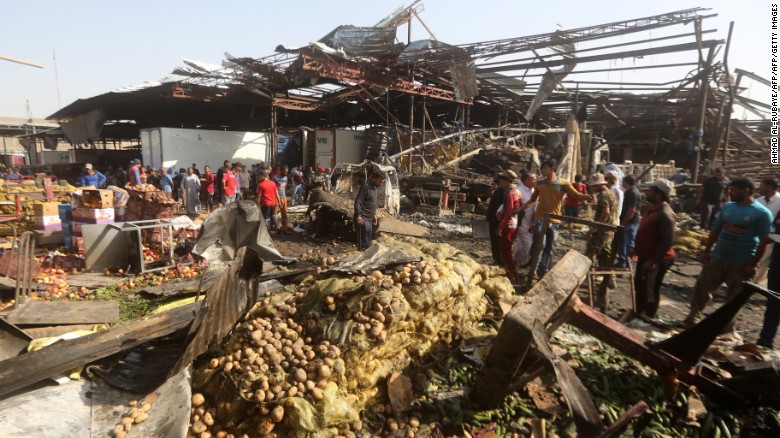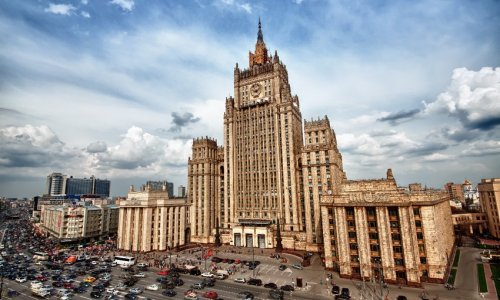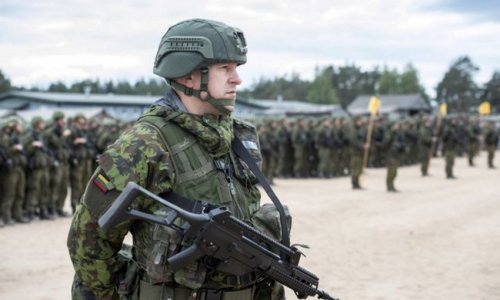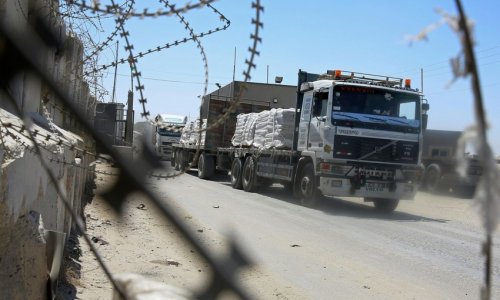The then-incoming Chairman of the Joint Chiefs of Staff, Gen. Joseph Dunford, made news at his confirmation hearing in July by saying that, in his view, Russia was now the greatest national security threat facing the United States.
Certainly, the chairman has a point.
There is no question but that Vladimir Putin is determined to do everything in his power to restore as much of the Soviet empire as possible and to do everything in his power to "stick it to" the United States, in general, and to President Obama, in particular, whom he views as weak and indecisive.
There are other contenders for the dubious title of "No. 1 Security Threat to the United States." China, Iran, and North Korea come to mind, for reasons that are obvious to even the most casual observers of national security issues and foreign policy.
But, to my mind, 14 years after 9/11, there is no question but that the No. 1 security threat to the nation remains terrorism. Unlike Russia and China, which are long-term threats to America's continued global geopolitical hegemony, and unlike Iran and North Korea, which are near-term threats to our regional allies and interests, terrorism is a direct and immediate threat to the United States itself, to our very "homeland."
Needless to say, the directness and immediacy of the threat was made catastrophically clear on 9/11, with the killing of thousands of Americans in New York and Washington that tragic day. All these many years later, the threat is just as direct and immediate. If anything, it is even more so.
For one thing, the terrorist group that perpetrated that attack, known in national security parlance nowadays as "al Qaeda core," is still with us. Yes, Osama bin Laden is dead, thankfully, and many other senior leaders in the years since 9/11 have likewise been killed or captured. Al Qaeda is but a shadow of its former self, but not all shadows are chimerical.
Al Qaeda is still out there, determined to carry out another 9/11-scale attack on the homeland. If anything, given the competition among terror groups now to be the "biggest and baddest," al Qaeda is more determined than ever to do so, to prove that it is still in the game and more potent than the other players on the field.
And, there are now menacing al Qaeda affiliates around the world, with the most menacing being, of course, its Yemeni branch, Al Qaeda in the Arabian Peninsula, or "AQAP." They are likewise determined to carry out another catastrophic attack on the homeland, and are particularly fixated on devising explosives that can evade detection and bring down airliners.
The goal seems to be to prove that, all these many years after 9/11, with huge resources and attention devoted to securing the aviation sector, we are still weak at our strongest point. But for the grace of God and strong intelligence partnerships, AQAP would have succeeded already.
But, now, added to the mix is the gravest terror threat of all, a group that is truly "sui generis," ISIS. What makes ISIS unique? Why does every other terror group, and every other national security threat, pale in comparison?
First, it holds vast stretches of territory. And, this territory is not in some obscure, out of the way place like the Afghan/Pakistan border, where al Qaeda core makes its home. It is in Iraq and Syria, right in the heart of the Middle East and right on the periphery of Europe (which, of course, not incidentally, largely accounts for the huge migrant crisis in Europe now that, at least to some degree is a potential security threat in and of itself). ISIS can, and does use this territory to plot and train for terror attacks, and to showcase what jihadi governance is like, which is a recruiting tool in and of itself.
Second, it is immensely wealthy from captured oil refineries, taxation, and extortion. Al Qaeda had to depend on the generosity of Gulf donors, and, while still flowing, that pipeline has been increasingly clogged by the aggressive and creative efforts of counterterrorism experts in our Treasury Department.
Third, ISIS fighters are not some ragtag band of would be tough guys. The core of ISIS are the battle-hardened top ranks of Saddam's Baathist army. These guys know how to fight and to win.
Fourth, needless to say, ISIS is savagely brutal. It is so savagely brutal -- beheadings, crucifixion, hurtling suspected homosexuals off rooftops to their deaths, locking that downed Jordanian pilot in a cage and then burning him alive -- that even al Qaeda has blanched! That tells you all you need to know about what we're up against now.
Fifth, they have no equal when it comes to mastering social media and the Internet. In the al Qaeda era, recruiting was retail and overt, meaning, terrorists had to recruit would-be terrorists pretty much one at a time and pretty much in the open. We had great success in infiltrating fertile recruiting grounds like mosques and interdicting plots before they went too far. No longer. Now, ISIS recruiting is wholesale and covert.
The vastness of cyberspace allows them to recruit thousands, even millions, all at once, and to do so in the anonymity of people's dens and basements. Likewise, training has gone wholesale and covert. No longer is there the need to travel thousands of miles away to some Afpak training camp. In the infamous words of Inspire magazine, you can be taught on the Internet "how to make a bomb in the kitchen of your mom."
Most worrisome of all is ISIS' tactical approach to terrorism in contrast to that of Al Qaeda and AQAP. While they remain focused on catastrophic attacks, ISIS focuses on what I call "anytime, anywhere, any kind" attacks. ISIS has famously called on its followers to carry out whatever kind of terror attack they can, wherever they are, with whatever they've got: a gun, a knife, a bomb, a car, etc.
While catastrophic attacks, by definition, kill and injure more people than "anytime, anywhere, any kind" attacks, their very scale makes them more complicated to carry out. The more time it takes to plan attacks, the more people are involved in carrying them out, the more money it takes to finance them, etc., the more opportunities there are along the continuum from plot to execution to foil them.
In contrast, there is literally no way of preventing every single would be terrorist from shooting or stabbing the guy next to him, or from mowing down a few people with his car, or from walking into a subway station and igniting a suicide vest.
In short, then, with all due respect to those who rightly see this nation state or that as an increasing threat to the United States, the sobering fact this 9/11 anniversary is that terrorism remains the No. 1 threat.
(CNN)
www.ann.az
Follow us !











